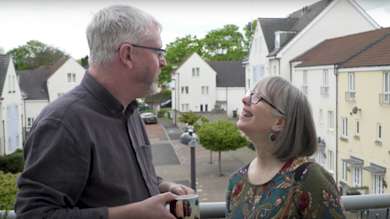
Probate client video testimonial and case study
Brian and Sky, explaining how their Probate Case Manager helped them following the death of Sky's parents
Executors and administrators have a lot of responsibilities during probate. They can be held financially liable for any mistakes they make.
Choosing executors for your will is an important decision. Learn more about what they will need to do and how to pick the right people.
After someone dies, their property, possessions, money and other affairs need to be sorted out. This is called dealing with their estate. The executor or administrator is the person who has the legal authority to do this work and they can ultimately be held accountable for any mistakes made.
You might also hear executors or administrators referred to as personal representatives. This is a general term for the person responsible for dealing with the estate. Learn more about who the personal representative will be if there is no will.
Being named as executor in a will can bring with it complicated, difficult and time-consuming duties which can take up to a year or more to complete.
It is crucial to get everything right because the executor is legally responsible for administering the estate in accordance with the terms of the will and the law. An executor is responsible for everything they do or fail to do when administering the estate.
Acting as the executor of a will can be a very daunting prospect because of the amount of legal, tax and administrative responsibilities. An executor's responsibilities last for the duration of the administration of the estate and can also carry on afterwards if there are trusts.
applying for the grant of probate (or the grant of letters of administration if there isn't a will)
identifying and dealing with any valid claims against the estate
If you find yourself in this situation and you are feeling overwhelmed, we can help. Our fully trained probate specialists will work alongside our probate solicitors and lawyers to support you, and our probate advisory team offer free initial advice and guidance on executor duties and responsibilities.
The length of time that it takes to administer an estate will vary depending on the size and complexity of the estate, as well as how much time the executor is able to commit to it and their proficiency in carrying out their duties. In many cases it can take up to a year, but it could take longer. Executors should also think about how long it will take to pay beneficiaries.
There is a lot of complex tax, legal and administrative work involved in the administration of an estate, so it’s important to be aware of what the executor role entails right from the outset.
Often more than one executor is named in a will, but not all of the executors have to apply for probate. A maximum of four people can apply to the Probate Registry to prove a will and be named on the grant of probate.
If some executors choose not to be involved in the administration of the estate, they have two choices. They can either renounce their role altogether or they can have 'power reserved' to them, which means they can step back in later on if they choose to.
If an executor dies after the estate administration has begun, what happens next depends on whether the executor dies before or after probate has been granted.
If an executor dies before probate has been granted, but there are other executors named in the will, the surviving executors can simply apply for the probate.
If all of the named executors have died or there are no substitute executors, the law will determine who is entitled to administer the estate. The Non-Contentious Probate Rules 1987 lists the order of priority of who can take this role.
If a sole executor dies after the grant of probate has been issued, if they left their own will, then the acting executor of their estate will also become the executor of the original estate. This means that no further grant of probate will need to be issued on the original estate. This is known as the chain of representation.
However, if the deceased executor did not leave a will, there isn't a chain of representation and a new grant would be required to complete the estate administration. The person who is entitled to apply for this document will usually be a residuary beneficiary.
Learn more about how probate works when an executor has died.
Executors and trustees both have a part to play in probate, but these two roles are very different.
Trustees will only be needed if a trust arises under the will. The trustees are the people responsible for looking after the assets in the trust for the benefit of the named beneficiaries.
Co-op Legal Services has over 800 staff working in different businesses with offices in Manchester, Bristol, Stratford-upon-Avon, Sheffield and London.